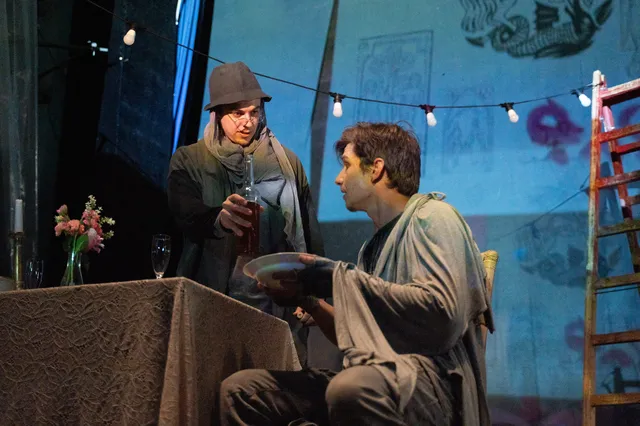The dragon in us
A dragon has subjugated a city for centuries. The inhabitants must feed it thousands of cows, sheep and chickens and sacrifice a maiden to it every year. But the people have come to terms with this, no one rebels against it, on the contrary, in fact they consider the dragon's rule to be safe. One day a young man, the knight Lancelot, appears and questions this order. He falls in love with the beautiful Elsa, who is to be sacrificed that year, and wants to fight the dragon. But virtually no one sees him as a possible liberator or would be willing to support him in battle.
In 1943, Russian author Yevgeny Schwarz dressed his criticism of the German Nazi regime in the garb of a fairy tale. But the Communist leaders of the Soviet Union at the time also saw themselves reflected in the play The Dragon. After two dress rehearsals in Moscow in 1944, the performance was banned. The parable has remained frighteningly topical in light of Russia's war against Ukraine. For Schwarz not only satirizes dictatorships, but also shows that arbitrariness and violence endure because people have internalized the mechanisms and values of such a system of government. We all carry the dragon within us.

